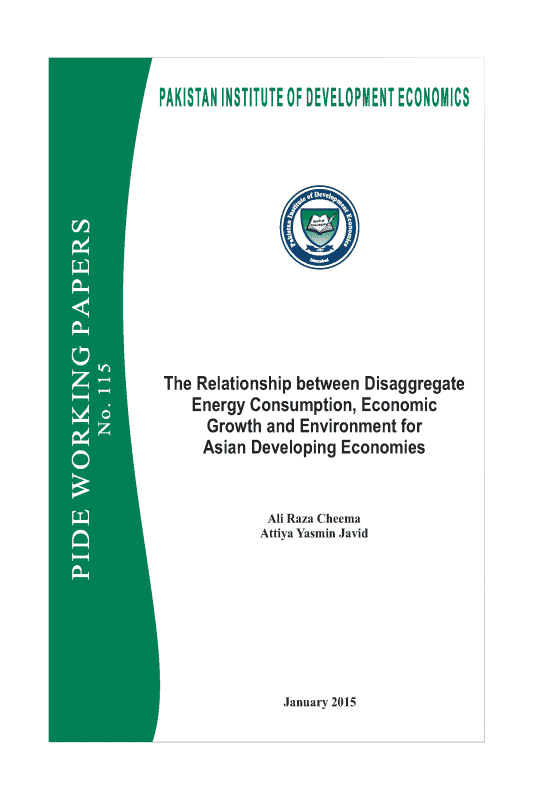The Relationship between Disaggregate Energy Consumption, Economic Growth and Environment for Asian Developing Economies
This study evaluates the link between disaggregate energy consumption (coal, petroleum, electricity, renewable energy consumption), economic growth and environment for Asian Developing countries. Cointegration tests verify long run relationship among energy consumption and growth, energy consumption and environment degradation along with trade openness and financial development as control variables. To find long run elasticities fully modified OLS is used, which confirms that all forms of disaggregate energy consumption explain positive and significant impact on economic growth. Results also show that all forms of disaggregate energy use more pollute environment (except coal consumption) and also validate the existence of Environmental Kuznets curve. Important policy implication is that government needs to promote renewable energy sector because its increase economic growth and its impact on environment degradation is low as compare to other sources. Investment in renewable energy sector is beneficial for private and public sector after conducting cost and benefit analysis.




